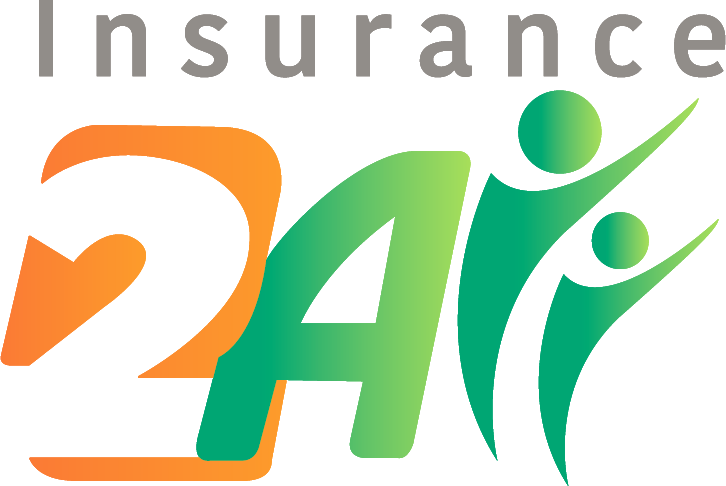Feeling the burn from traditional health insurance? Let me tell you, you’re not alone. At Insurance 2ALL, we’ve got a full grasp on this—one size fits none in the world of healthcare. So, what’s the play here?
Alternative health coverage—yep, it’s gaining steam. Offering fresh (and, dare I say, innovative) ways to handle your medical expenses while still hooking you up with top-tier care.
In this piece, we’ll break down a few intriguing alternatives that could be a better fit for both your needs and—cue the applause—your wallet.
What Are Alternative Health Coverage Options?
Defining Alternative Health Coverage
So, you’re tired of your health coverage being as satisfying as a soggy sandwich – paying out the nose for something that feels like a leftover? Enter alternative health coverage options. They’re like that unexpected hack in a video game that lets you skip to the good stuff. More affordable, flexible, and tailored to your lifestyle. Who wouldn’t want healthcare that doesn’t feel like a racket?
Turns out, a lot of folks are fed up paying exorbitant amounts for insurance they barely use. High premiums, scary deductibles, out-of-pocket melodramas – ugh, who needs it? No wonder people are queuing up for the alternative aisle.
Types of Alternative Coverage
Here’s where the fun begins – a buffet of health coverage possibilities. Ever heard of Health Savings Accounts (HSAs)? It’s like a tax-loving piggy bank that helps you stash away cash for medical expenses. Sounds fancy? Not really, it’s just smart economics.
Then there’s Direct Primary Care (DPC), which is more like having a doctor on speed dial without getting trapped in the insurance jungle gym. Hello, immediate care; goodbye, waiting room purgatory. Seriously, who has time for that?
Benefits of Alternative Options
And guess what? Cost savings – that elusive unicorn – might actually be within reach. Take a gander at the Kaiser Family Foundation; they say the average Joe shelled out $7,739 for single coverage in 2021. Alternative options? Well, they can slice that number down and make you feel smart – really smart.

But it’s not just about cash – flexibility is the secret sauce here. Choose your healthcare providers the way you choose your coffee: how you like it, where you want it, no network shackles to bind you. Feel like seeing your favorite doc? You do you.
Considerations for Choosing
Still, let’s not paint a Rosy picture without checking the small print. Some alternatives have tiny strings attached – watch out for those pre-existing conditions or coverage ceilings that may feel like a low-hanging ceiling fan.
We’re not saying ditch the status quo without doing your homework. Give potential plans the eyeball, check the nuts and bolts – what’s included, what’s excluded, how the costs shake out. Think of it as decoding your own Da Vinci Code of healthcare.
Bottom line? No cookie-cutter solutions here, folks. Your buddy’s go-to might not be your jam. Personalized consultations? Yes, please – it’s like having your own healthcare GPS to navigate the maze.
Next up, let’s dig into a popular alternative – Health Sharing Ministries. These faith-based assemblies offer a unique spin on managing those healthcare bills.
Health Sharing Ministries: A Faith-Based Alternative
Health sharing ministries – kinda like the cool kids on the block in the vast universe of health insurance alternatives. They’re faith-driven collectives pooling everybody’s contributions to handle medical expenses. So, how do these ministries really tick, and is jumping on board right for you?
The Inner Workings of Health Sharing
Members chip in monthly, kinda similar to insurance premiums. Got a medical bill? Send it to the ministry, then watch ’em work their magic-redistributing those costs throughout the member base.
Here’s the kicker: they’re not insurance companies (don’t count on ’em to automatically foot the bill). They bank on the trust and solidarity of their members to cover one another’s healthcare costs.

Advantages and Potential Drawbacks
Why are folks drawn to health sharing ministries? Simple. The price tag. Those monthly contributions often give traditional premiums a run for their money.
Plus, you get the freedom to pick any healthcare provider – no pesky network constraints. Want to see a specific doctor? Go for it.
Yet, beware… drawbacks lurk. They sidestep Affordable Care Act regulations, which means they might skip coverage for pre-existing conditions and slap lifetime limits on benefits.
And it doesn’t stop there. Brace yourself for the faith-based benchmarks. You might need to live by some lifestyle choices (a no-go on tobacco and excessive alcohol, for instance).
Eligibility Criteria
Who gets to hop on this health-sharing train? It varies, but most want you to be a practicing Christian. Some ask for a pledge of faith or adherence to certain moral codes.
Age? That can be a factor, too. While some open the doors to everyone, others have age restrictions or tweak contribution levels for older folks.
Before you make a leap, dive deep into a ministry’s guidelines. Watch out for waiting periods on specific conditions or any exclusions on treatments that clash with their beliefs.
Making an Informed Decision
While health sharing ministries bring something fresh to the table, they’re not a one-size-fits-all solution. Weigh your options like you’re picking a new Netflix binge-and be sure your healthcare needs and beliefs align.
On the fence about joining or exploring new health cover paths? Holler at Insurance 2ALL. These folks can navigate you through the murky waters of various health coverage options and find something that hits the mark.
Now, shifting gears, let’s delve into another forward-thinking healthcare alternative: Direct Primary Care (DPC). Promising to shake up doctor-patient dynamics and trim down healthcare costs-could this be the next big thing?
Is Direct Primary Care Right for You?
What is Direct Primary Care?
So, here’s the deal with Direct Primary Care – fewer patients, more time with the doc. We’re talking about a direct financial link between you and your physician. You pony up a monthly or annual fee (somewhere between $50 to $150 a month, age and location dependent) and in return, you get most primary care services thrown into the bargain – consultations, check-ups, some lab work. No co-pays, no deductibles. Simple, right?
Benefits for Patients
DPC is like the VIP pass to healthcare. You get the doc’s cell number and can snag same-day or next-day appointments. The Society of Actuaries crunched the numbers and found DPC members had 35% fewer hospitalizations compared to the rest. That’s a win for your health and your wallet.
In DPC world, your appointment? 30 to 60 glorious minutes. A stark contrast to the conveyor belt 15-minute dash in regular settings. More time means better care, deeper relationships with your doc.

Advantages for Doctors
Docs dig DPC. More job satisfaction, less burnout – more face time with patients, less grappling with insurance nonsense. A recent study tells us 77% of docs in DPC are satisfied at work.
Combining DPC with Other Coverage
DPC isn’t the whole enchilada by itself. It’s best paired up with other coverage. Many folks opt for a high-deductible health plan (HDHP) alongside DPC for those catastrophic “just in case” scenarios. Comprehensive coverage without emptying the piggy bank like traditional insurance would.
Some savvy employers are catching on and weaving DPC into benefits packages. Partnering up with outfits like Nextera Healthcare saves bucks and boosts health outcomes. Smart move.
Is DPC Right for You?
Sure, DPC sounds dreamy, but it’s not for everyone. It’s for those who crave personal care and predictable expenses. As we trudge through the ever-changing healthcare landscape, DPC’s shaking things up – spotlighting patient health.
(For the million-dollar question on whether DPC with added coverage suits your needs, hit up Insurance 2ALL. Our savvy folks will guide you through the labyrinth of modern healthcare options.)
Final Thoughts
So, there we have it-alternative health coverage options, shaking up the healthcare game. These new-age strategies? They’re offering a fresh spin on keeping those medical bills in check while making sure you get the care you need. Each one comes with its own set of pros, cons, and quirky features, all built to fit different lives and what folks are looking for.
Now, picking the right plan. It’s all about you-your life, your health, your wallet, and what you value most. Seriously, spend some time figuring out what you need health-wise and dig into those potential alternatives. But heads up, not all of them pack the same punch as the traditional insurance could-especially when it comes to those nasty pre-existing conditions or unexpected, big-ticket medical surprises.
Check out Insurance 2ALL, the folks who specialize in navigating this crazy world of health coverage options. With a team that’s been deep into the Obamacare and Medicare scene for over a decade, they’ve got the smarts to match you with a plan that doesn’t just fit, but works for you and your budget. Give Insurance 2ALL a shout today and start exploring the health coverage options that could be your perfect match.




